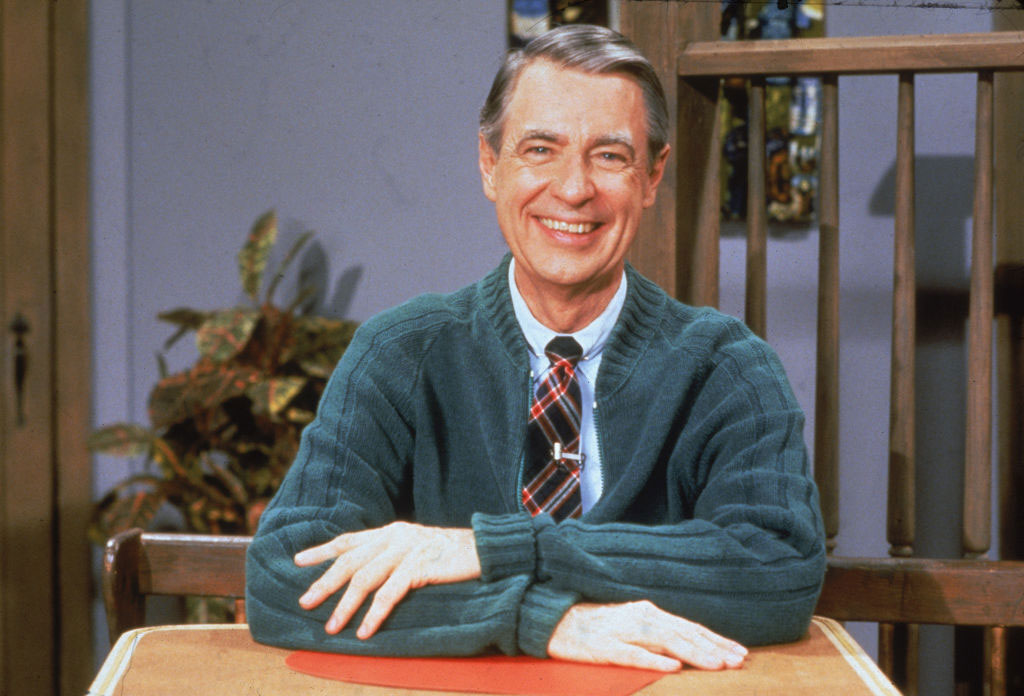Mr. Roger’s Neighborhood – A Case Study for Today’s Leaders

In today’s increasingly chaotic and unpredictable world, a premium is being placed on the attributes and actions of our leaders. While some may argue that this is not a new expectation, the reality is that 2020 has brought an unanticipated share of challenges that have tested new and seasoned leaders in ways that could have never been imagined. The COVID-19 pandemic, racial injustice, social inequity, political division, natural disasters and economic upheaval are but a few of the disturbing realities that have transpired in 2020, and the year has yet to end. While the future is impossible to predict, it is safe to assume that the velocity of change and the necessity that leaders demonstrate the courage, compassion and capacity to navigate such change will only increase.
With this backdrop, I am often asked which past or present leader possesses the particular qualities that I feel are most needed in today’s leaders who are tasked with leading in the 21st Century. Like most, I have admired many leaders from all walks of life and have learned from all of them, but the leader who rises to the top for me at this moment in time is the iconic Mr. Fred Rogers, the late author and creator of Mr. Roger’s Neighborhood.
The first impression that may come to mind when I suggest his name is a soft-spoken, even-keeled child-whisper whose melodic dialect, hand puppets and sing-alongs could entertain audiences for hours. Recent documentaries and Hollywood movies remind us of these truths, but objectively, I’ve come to appreciate Mr. Rogers as a world class leader. Let me explain.
At Intuit, we have studied the best practices of world class leaders for more than three decades. We have codified their best practices into a leadership playbook that we use to develop and teach our employees to lead at scale. At the highest level, the playbook centers on three main attributes: (1) Leading with a clear vision, (2) Building a high performance culture, and (3) Delivering winning results. Mr. Rogers personified each of these attributes.
Leading with a clear vision
Fred Rogers embraced a bold vision and never wavered from his purpose. His goal was to improve children’s physical and emotional well-being while harnessing one of the most disruptive technologies of his time for the greater good– television in the home. While most of our memories may be hand puppets and sing-along melodies, Fred Rogers displayed the courage to use this medium to tackle the most challenging and divisive issues of his generation, teaching young minds how to understand and navigate such subjects as war, death, racism, school enrollment and divorce, just to name a few. He was even called out of retirement to record a video to help children process the emotional trauma caused by the horrific attacks on 9/11. Mr. Rogers remained true to his vision, and never shied away from dealing with tough issues along the way.
Building a high performance culture
Progressive leaders recognize the power of fostering a culture that values collaboration, openness, and opportunity for all. While this thinking may be more mainstream today, we recognize that we have much work ahead as evidenced by the systemic inequity and bias that persists in our society. Mr. Rogers was ahead of his time in this regard, from his famous puppets, authentic in the roles they represented, to his adult cast reflecting society through race, gender, and sexual orientation.
Mr. Rogers embraced and celebrated others for their authentic selves, and he showcased how our differences made us collectively stronger. He took a stand against racial inequality, with the most famous example occurring in 1969 when he invited Officer Clemmons, a Black police officer on the show, to join him and cool his feet in a small plastic wading pool. The scene aired amid civil unrest over pool segregation policies in the United States. In this way, Rogers held himself, his cast, Congress and the Public Broadcasting System to the highest standards in quality programming and impact.
Delivering winning results
Throughout his career, he delivered standard-setting results. For thirty-three years, he was the inspiration and front-man for a top-rated children’s show. In addition, he wrote 30 books, earned 40 honorary degrees, won 4 Emmy’s, was inducted into the Television Hall of Fame, and was presented with the Presidential Medal of Freedom. His achievements stand the test of time and prove that kindness should never be mistaken for weakness.
It is through objectively assessing Mr. Rogers against these leadership attributes that I conclude his example is a case study in world class leadership. The world would benefit from Mr. Rogers at this time. My hope is that today’s leaders will take a lesson from his example. After all, the ultimate test of leadership is best summarized by Maya Angelou who once stated, “people will forget what you said, people will forget what you did, but people will never forget how you made them feel”. Humm a few bars of “It’s a wonderful day in this neighborhood” and ask yourself, “wouldn’t I be blessed to have such an impact in this world?”